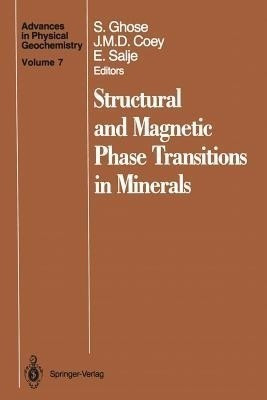Structural and Magnetic Phase Transitions in Minerals(English, Paperback, unknown)
Quick Overview
Product Price Comparison
Phase transitions in minerals are of interest to a wide spectrum of scientists - geolo- gists, mineralogists, solid state chemists, and physicists. We have now reached the point where mean field theory or Landau Theory of phase transitions as a function of temperature, pressure, or chemical composition can be usefully applied to natural materials, resulting in an improved understanding of the thermodynamics of signifi- cant constituents of the earth. Given the chemical complexity of so many silicate solid solutions, there are two distinct approaches to the problems posed by common minerals: one is to con- centrate on model compounds which could be synthetic analogs or natural end- members; the other is to work on typical minerals, with all the disorder and inhomogeneity that this implies. Model compounds provide the elements needed to build up a realistic understanding of the thermodynamic behavior of natural inor- ganic materials in all their complexity.In the first part of the book, a number of papers are devoted to structural phase transitions in quartz, Na-and Ca-feldspars, MgSi0 perovskite, and PbI , where Landau Theory and lattice and molecular 3 2 dynamics have been used to explain or predict thermodynamic behavior. A different thermodynamic approach has been used to understand phase separation and atomic ordering in solid solutions such as olivines, pyroxenes, rhombohedral carbonates and oxides. E. Salje (Chapter 1) applies the Landau Theory for the second-order phase transi- tion to the feldspar end-members albite, NaAlSi0 , and anorthite, CaAlSi0 .


